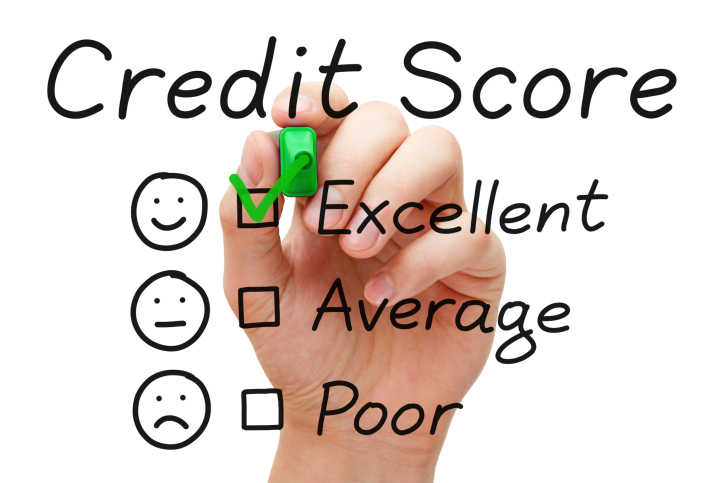Four Ways That Being Diligent with Your Mortgage Payments Can Seriously Improve Your Credit
 The unfortunate reality is that many individuals have a lower credit rating than they would like. For many, this is caused by issues related to high debt balances, late payments and other related issues.
The unfortunate reality is that many individuals have a lower credit rating than they would like. For many, this is caused by issues related to high debt balances, late payments and other related issues.
If you have a lower credit rating, you may be wondering what steps you can take to improve your standing with the credit bureaus. While there are several steps available for you to consider, making timely payments on your home mortgage can have a great impact on your credit. There are four unique ways that diligence with your mortgage payment may improve your credit.
Showing Financial Responsibility
First, when you make timely payments on an account, including your mortgage, you are proving your financial responsibility. Previous issues with late payments, collections accounts and other similar credit events may have indicated that you are a credit risk to lenders, but you can prove your responsibility through regular mortgage payments.
Reducing Outstanding Debt Balances
High debt balances are another common reason your credit ratings may be lower. When you make your mortgage payments on time, you will effectively reduce your outstanding balance on what may be the largest single debt that you have. This can have a tremendous impact on your rating over time.
Preventing New Derogatory Credit Events
When you are trying to improve your credit rating, the last thing that you may want is to have additional derogatory credit events listed on your credit report. Making your mortgage payments on time each month will prevent new late payments from being shown on your report. Establishing a solid new credit history from this day forward will help you to rebuild your credit rating.
Increasing The Length Of Time Between Older Derogatory Credit Events
As you regularly make your payments on your mortgage each month, more time will elapse between any blemishes or derogatory events on your credit report. Essentially, you will be making those derogatory events dated, and you will have a recent history of positive activity. Increasing the length of time between the present and your derogatory credit items is a great way to boost credit scores.
If you have a speckled credit history with lower scores than you would like, you understandably want to take steps to improve your credit rating. These are all ways that making timely mortgage payments can boost your credit rating, and you can apply these concepts to any other outstanding debts as well.
A mortgage consultant may help you to learn more about your current credit report and steps that you may take to boost your scores.

 Spring is aproaching fast and it is usually the busiest time of the year for home buying. After a long and cold winter, many people are ready to enjoy the nicer weather and begin to shop for a new home. Spring is also the perfect time for home buying for families with children because it allows them to move during the summer without interrupting school.
Spring is aproaching fast and it is usually the busiest time of the year for home buying. After a long and cold winter, many people are ready to enjoy the nicer weather and begin to shop for a new home. Spring is also the perfect time for home buying for families with children because it allows them to move during the summer without interrupting school. Finding a proper mortgage loan and understanding the processing procedures behind the loan is the basis of good research. The down payment on a mortgage loan is typically significant when dealing with mortgage insurance.
Finding a proper mortgage loan and understanding the processing procedures behind the loan is the basis of good research. The down payment on a mortgage loan is typically significant when dealing with mortgage insurance. If you are self-employed, either as a freelancer or as the owner of your own business, your income can fluctuate greatly from year to year. That can make it difficult to get approved for a mortgage, although there are some things you can do to improve your chances. Here are three tips for securing a mortgage if you are self-employed.
If you are self-employed, either as a freelancer or as the owner of your own business, your income can fluctuate greatly from year to year. That can make it difficult to get approved for a mortgage, although there are some things you can do to improve your chances. Here are three tips for securing a mortgage if you are self-employed. If you’re a homeowner who is looking to tap in to the home equity that you’ve spent years building you may be interested in a “reverse mortgage” or “home equity conversion mortgage”. While these unique financial tools aren’t for everyone, if you qualify for a reverse mortgage you’ll find that this might be the perfect financial solution which allows you to pay off your existing mortgage, or for some other regular expenses that you have.
If you’re a homeowner who is looking to tap in to the home equity that you’ve spent years building you may be interested in a “reverse mortgage” or “home equity conversion mortgage”. While these unique financial tools aren’t for everyone, if you qualify for a reverse mortgage you’ll find that this might be the perfect financial solution which allows you to pay off your existing mortgage, or for some other regular expenses that you have.